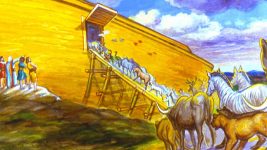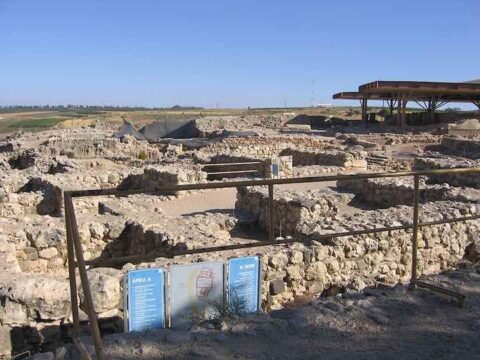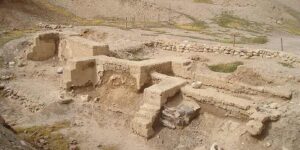The Old Testament presents significant difficulties to the modern mind: Is it historical or is it legend? Can we believe some of the weird and amazing stories, and the massive miracles like the sun standing still? Does it present an attractive portrait of God, or quite the opposite? A christian is able to sit loosely on many of these questions because our faith is built on the New Testament, not the old, but the problems still worry some believers and present major difficulties for some unbelievers.
This section considers some of the problems that have been raised that cast doubt on the accuracy of the Old Testament, using the consensus views of secular scholars, and suggests that we need to understand the Old Testament in a different way to how christians have traditionally done.
The Old Testament is commonly understood by modern day evangelical christians as being historically accurate because it is the “word of God”. Because of its divine origin, it cannot contain mistakes. They defend this view strongly against criticism from more sceptical scholars who treat the text as they would any other document, and not as in any way inspired.
However in recent times a more progressive view has emerged among scholars and lay christians, that the Old Testament should be understood as a record of God’s unfolding revelation in the history and culture of the times. Hence the Old Testament can still be considered to be “inspired” by God (though inspiration is understood differently to previously) and may contain history, legend, exaggeration and error, gradually being refined into historical truth as time goes on. Hence their view of the Old Testament is somewhere between the sceptics and the evangelicals.
I have built these pages on the conclusions of scholars who take this middle view as I believe this is the consensus view that avoids dogma and fits the facts best.
 Can we believe the Old Testament?
Can we believe the Old Testament?
There are many stories in the Old testament that are hard for modern people to swallow – Adam and Eve, Noah, Jonah, Moses, Joshua. But are readers meant to believe these stories were historical? Does the Bible make sense if we take a different view?
 Does archaeology show the Old Testament is true? The answer depends on which parts we are talking about. Here are the facts.
Does archaeology show the Old Testament is true? The answer depends on which parts we are talking about. Here are the facts.
 Did Moses really lead 2 million people across the Red Sea and into Canaan?
Did Moses really lead 2 million people across the Red Sea and into Canaan?
The exodus of 2 million Israelites from slavery in Egypt, led by Moses, the miraculous crossing of the Red Sea, the giving of the Ten Commandments, and their journey to Canaan, is a founding story for both Jews and christians. But is it believable?
 Did God really order the slaughter of the Canaanites?
Did God really order the slaughter of the Canaanites?
The Old Testament of the Bible records the Israelites conquering Canaan, destroying cities and killing all the inhabitants, all in response to God’s commands. How should we understanding this apparent genocide?
 Did the walls of Jericho really fall down?
Did the walls of Jericho really fall down?
The Bible story says the walls of Jericho fell down without the Israelites touching them, but could that be true?
Photo: The Great Isaiah Scroll, the best preserved of the biblical scrolls (known as the Dead Sea scrolls) found at Qumran. It contains the entire Book of Isaiah in Hebrew, apart from some small damaged parts. This manuscript was probably written by a scribe of the Jewish sect of the Essenes around the second century BC. From the Website of The Israel Museum, Jerusalem, photographer: Ardon Bar Hama. Public Domain. Wikipedia.
Feedback on this page
Comment on this topic or leave a note on the Guest book to let me know you’ve visited.
